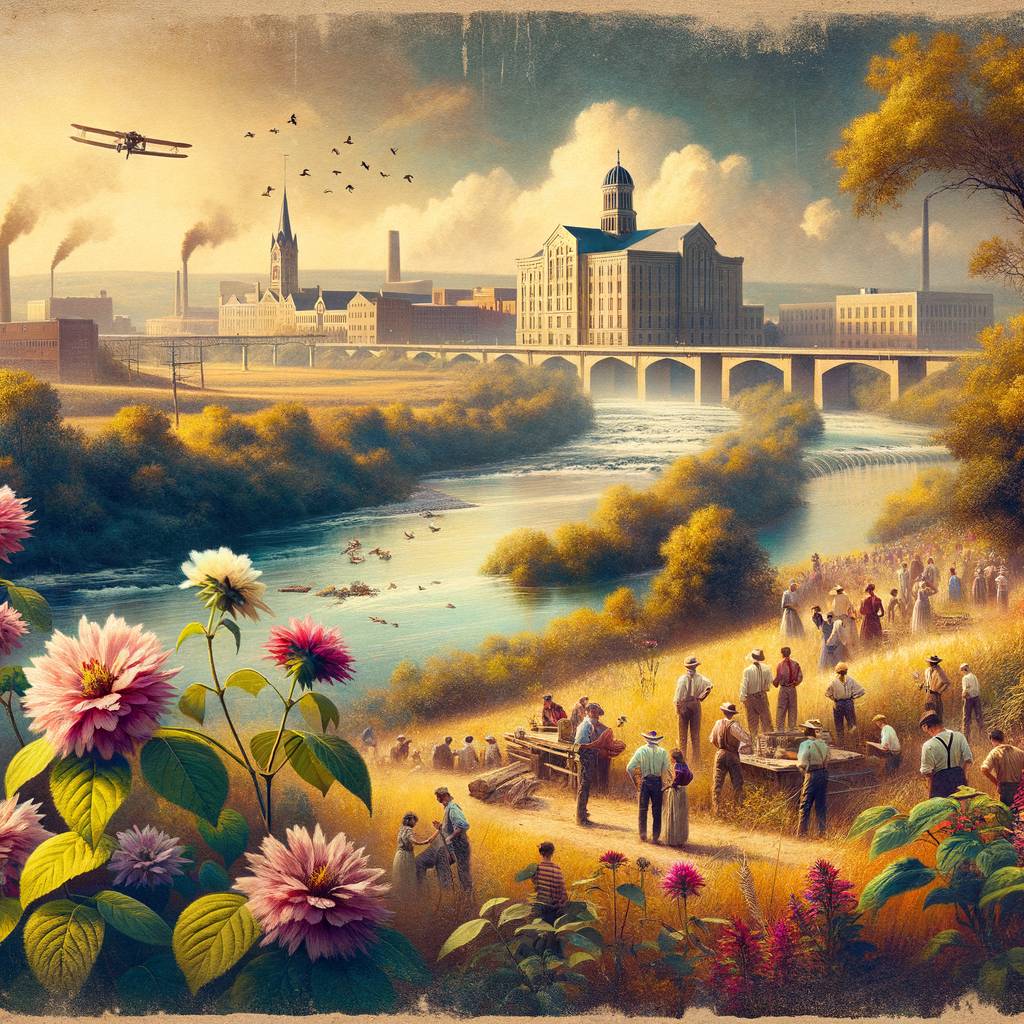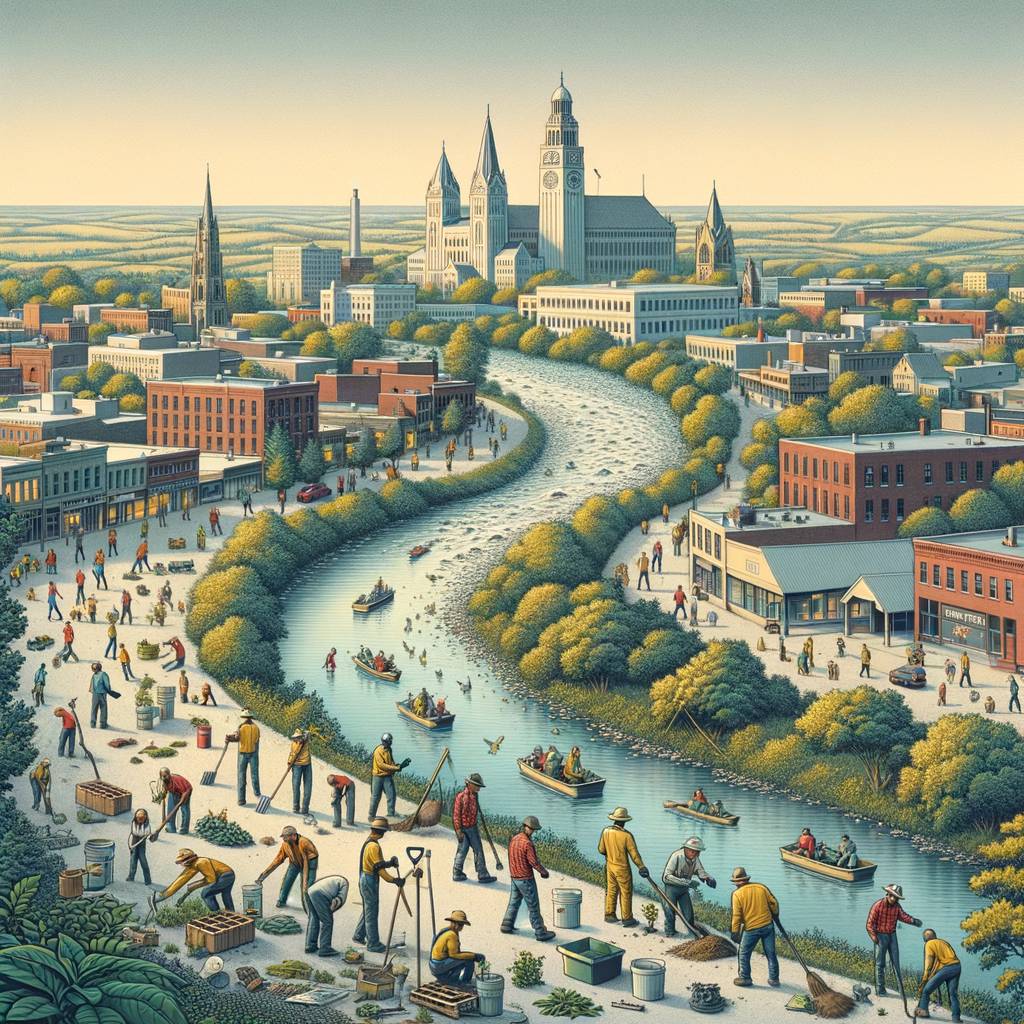Burlington, Iowa: A Hub for Conservation Efforts
Nestled along the Mississippi River, Burlington, Iowa is a small city with a big commitment to conservation. Known for its rich history and natural beauty, Burlington has become a focal point for environmental efforts, largely inspired by the legacy of Aldo Leopold, one of the most influential figures in American conservation. The Leopold Heritage Group is at the forefront of promoting this legacy in Leopold's hometown, fostering a community deeply engaged in preserving and enhancing its natural resources.
Burlington's Historical Connection to Conservation

Burlington's connection to conservation dates back to the early 20th century when the city began recognizing the importance of its unique ecosystems. The lush landscapes and diverse wildlife along the Mississippi River have long been appreciated by residents and visitors alike. The city's history is intertwined with these natural surroundings, leading to an enduring commitment to their preservation.
In the 1930s, during a time when industrialization threatened many natural habitats across America, Burlington stood out as a community that valued its environmental heritage. Local leaders and citizens alike rallied around initiatives aimed at protecting local flora and fauna. This historical dedication laid the groundwork for future conservation efforts that continue to thrive today.
Aldo Leopold's Legacy in Burlington
Aldo Leopold, born in Burlington in 1887, is often hailed as the father of wildlife ecology and a pioneering figure in conservation ethics. His seminal work, "A Sand County Almanac," published posthumously in 1949, remains a cornerstone of environmental literature. Leopold's philosophy emphasized a deep respect for nature and advocated for a land ethic that calls for responsible stewardship of our natural resources.
Leopold's impact on Burlington is profound. His teachings inspire local conservation strategies and are celebrated through various initiatives led by the Leopold Heritage Group. This organization is dedicated to preserving his legacy by promoting sustainable practices and educating new generations about the importance of ecological balance.
Local Conservation Organizations and Their Impact

Burlington boasts several active conservation organizations that play crucial roles in safeguarding its environment. These groups collaborate with local government agencies, schools, and businesses to implement effective conservation strategies.
The Leopold Heritage Group leads efforts by organizing events such as tree planting drives and river clean-up activities. Additionally, they partner with other organizations like Des Moines County Conservation to manage protected areas effectively. Their collective impact is evident in the improved health of local ecosystems and increased community awareness about environmental issues.
| Organization | Focus Area | Key Activities |
|---|---|---|
| Leopold Heritage Group | Education & Advocacy | Workshops, Public Lectures |
| Des Moines County Conservation | Land Management | Habitat Restoration Projects |
Community Involvement in Conservation Initiatives
Community involvement is at the heart of Burlington's conservation success. Residents actively participate in various initiatives aimed at protecting their environment. From volunteering for clean-up drives along the Mississippi River to engaging in citizen science projects that monitor local wildlife populations, Burlingtonians are committed to making a difference.
Local schools also play an integral role by incorporating environmental education into their curricula. Students are encouraged to explore nature through field trips and hands-on activities that foster an appreciation for their surroundings. This grassroots approach ensures that conservation remains a community-wide effort with lasting impact.
- Volunteer Opportunities: Regular river clean-ups
- Citizen Science Projects: Wildlife monitoring
- School Programs: Environmental education curricula
Burlington's Natural Resources and Protected Areas
Burlington is blessed with abundant natural resources that provide both recreational opportunities and essential habitats for diverse species. The Mississippi River serves as a vital waterway supporting numerous aquatic organisms while offering scenic vistas enjoyed by locals year-round.
Protected areas such as Starr’s Cave Park & Preserve offer sanctuary not only for native plants but also migratory birds passing through this region annually—a testament to successful habitat management practices implemented over decades past.
These protected spaces allow residents access not just recreationally but also educationally—encouraging exploration while fostering understanding about ecological interdependence critical toward sustaining these environments long-term.
Educational Programs and Workshops on Conservation
Education plays an essential role within any successful conservation strategy—and Burlington excels here too! Numerous workshops conducted throughout year cover topics ranging from sustainable gardening techniques upcycling household waste materials into art pieces—all designed equip participants practical skills necessary contribute positively toward ecological sustainability locally globally alike!
Schools collaborate closely non-profit organizations deliver immersive learning experiences both classroom outdoors—ensuring students gain comprehensive understanding complexities involved maintaining healthy ecosystems surrounding them daily basis thereby instilling lifelong passion preserving planet earth itself!
Future Goals for Conservation in Burlington
Looking ahead toward future goals involves building upon existing successes expanding reach even further across broader spectrum society—engaging more individuals businesses policymakers alike creating cohesive network dedicated ensuring continued prosperity region’s invaluable natural assets generations come!
Key objectives include increasing green space within urban areas enhancing biodiversity corridors connecting fragmented habitats implementing innovative technologies reduce carbon footprint overall improving quality life all residents without compromising integrity surrounding landscapes themselves thereby securing brighter tomorrow everyone involved directly indirectly respective capacities!
